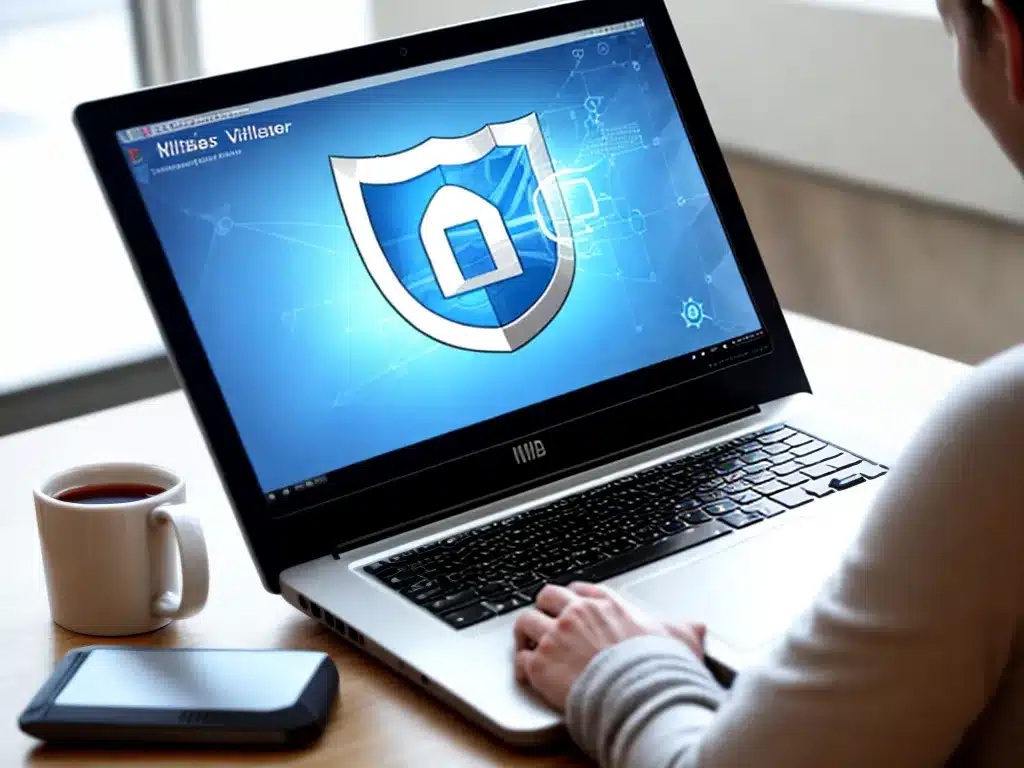
Keeping your computer protected from viruses and malware is extremely important. These unwanted programs can cause performance issues, corrupt your files, and even steal your personal information. Fortunately, there are steps you can take to significantly reduce your risk. Here are some tips to help you secure your computer:
Keep Your Software Up-to-Date
One of the best defenses is to ensure your operating system, software programs, and apps are all up-to-date. Developers regularly release security patches that fix vulnerabilities that viruses and malware can exploit. Setting your software to auto-update is an easy way to stay on top of the latest updates. For Windows, make sure to enable Windows Update. On a Mac, enable software update in System Preferences.
You should also update programs like web browsers, Office applications, PDF readers, and any other software you have installed. Malware authors are always finding new holes in programs to exploit, so installing the latest versions keeps you protected.
Use Strong Antivirus and Anti-Malware Tools
Antivirus and anti-malware software is designed to prevent malicious programs from infecting your computer. The software scans files and activity on your device looking for anything suspicious. If it detects a threat, it will block and quarantine it before it can cause harm.
Look for antivirus software that uses heuristic analysis to identify new and emerging threats. Popular options include Bitdefender, Kaspersky, and Malwarebytes. Just remember to keep the software updated as well so its virus definitions stay current.
Be Wary of Suspicious Links and Attachments
One of the main distribution methods for malware is through malicious links and email attachments. Use caution when clicking links from unknown sources. Even if the email looks like it is from someone you know, it could be a phishing attempt containing infected links or attachments.
When in doubt, confirm with the sender before clicking, especially on links promising exciting offers or outrageous stories. Hover over any links to preview the URLs before clicking. Be very suspicious of any attachments from people you don’t know.
Practice Safe Browsing Habits
The websites you visit can also be a source of malware. Practicing safe habits keeps your computer secure:
-
Only download software from official developer sites – Avoid third party download sites as they may contain malware
-
Don’t click ads or pop-ups – Stick to the main content of sites
-
Use an ad blocker – Ad blockers prevent malicious ads from loading
-
Ensure sites use HTTPS – The S verifies the identity of the site and encrypts traffic
-
Don’t use public Wi-Fi for sensitive tasks – Public networks are easier for hackers to snoop on
Use Strong, Unique Passwords
Having strong passwords prevents attackers that get into your system from accessing your online accounts. Tips for better passwords:
-
Make them long – At least 12 characters
-
Mix upper/lower case, numbers and symbols – Randomize as much as you can
-
Avoid common words or phrases – Be unpredictable
-
Use a unique password for each account – If one password is compromised, your other accounts stay secure
-
Use a password manager – Automatically generates and stores passwords
Back Up Your Data
If your system does become infected, having a backup of your important data gives you an option to recover. Regularly back up any documents, photos, or other files you don’t want to lose. Store the backups externally like on an external hard drive or cloud storage.
Stay Vigilant
While robust security software and safe practices are effective, nothing is foolproof. Remaining vigilant keeps that extra level of protection. Be wary of unfamiliar links and attachments, don’t plug in random USB drives, watch for unusual activity on your computer, and keep your software updated. Combining vigilance with the other tips will help keep your system malware free.
Staying secure online requires awareness and taking proactive steps. But implementing strong tools and exercising caution makes it much harder for viruses and malware to infect your computer. Using these best practices will help protect your computer, ensuring your files, privacy and identity stay safe.












